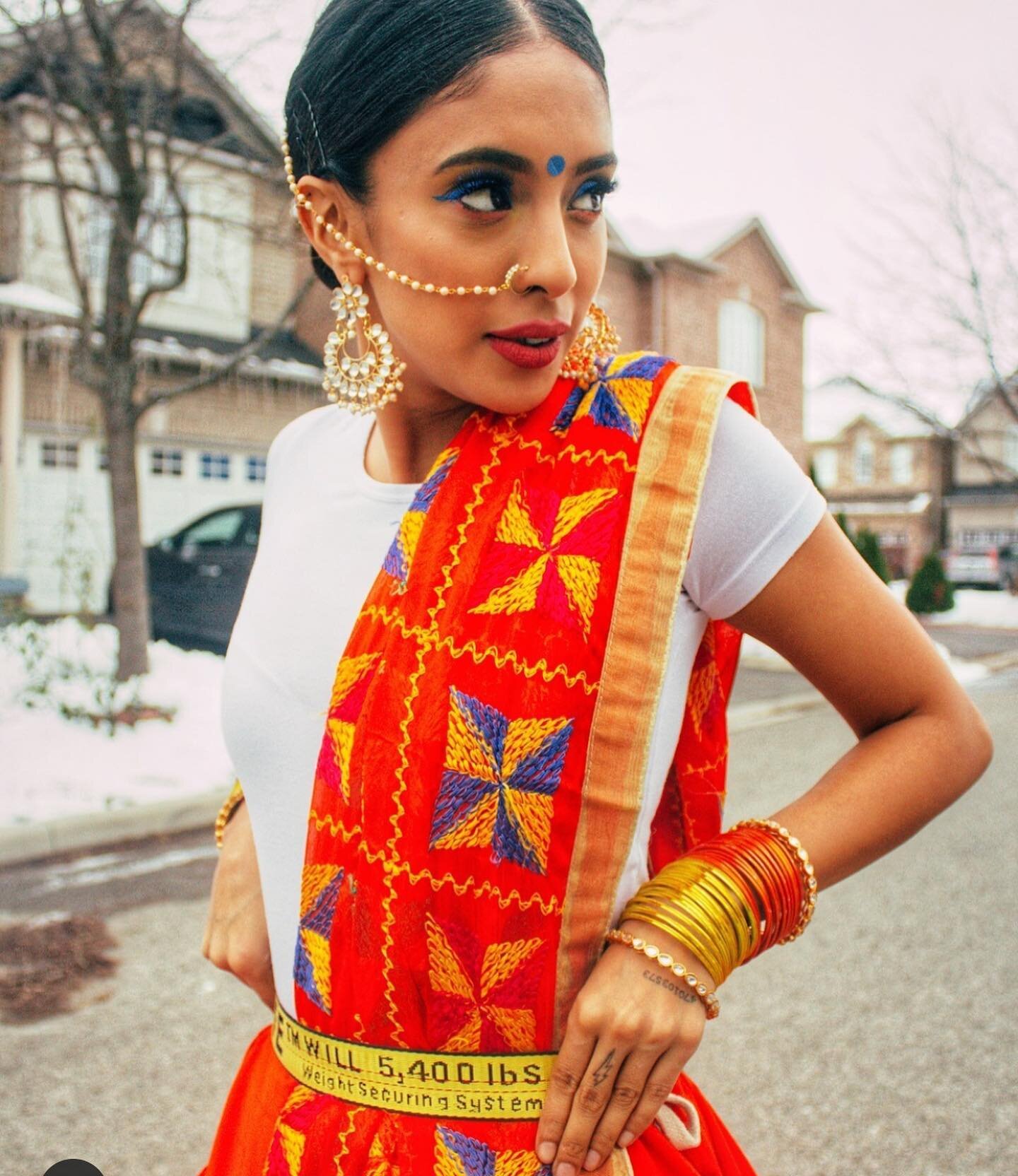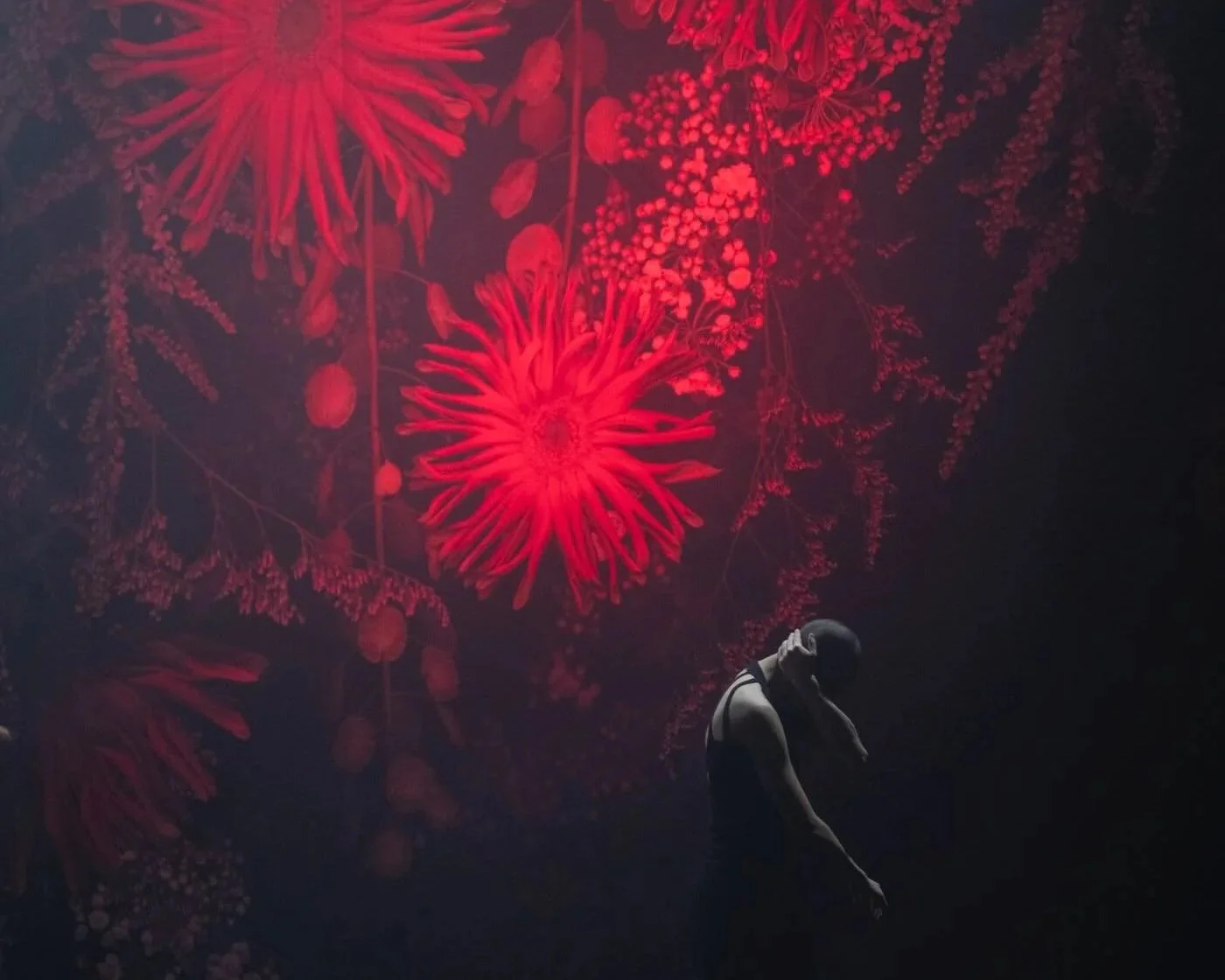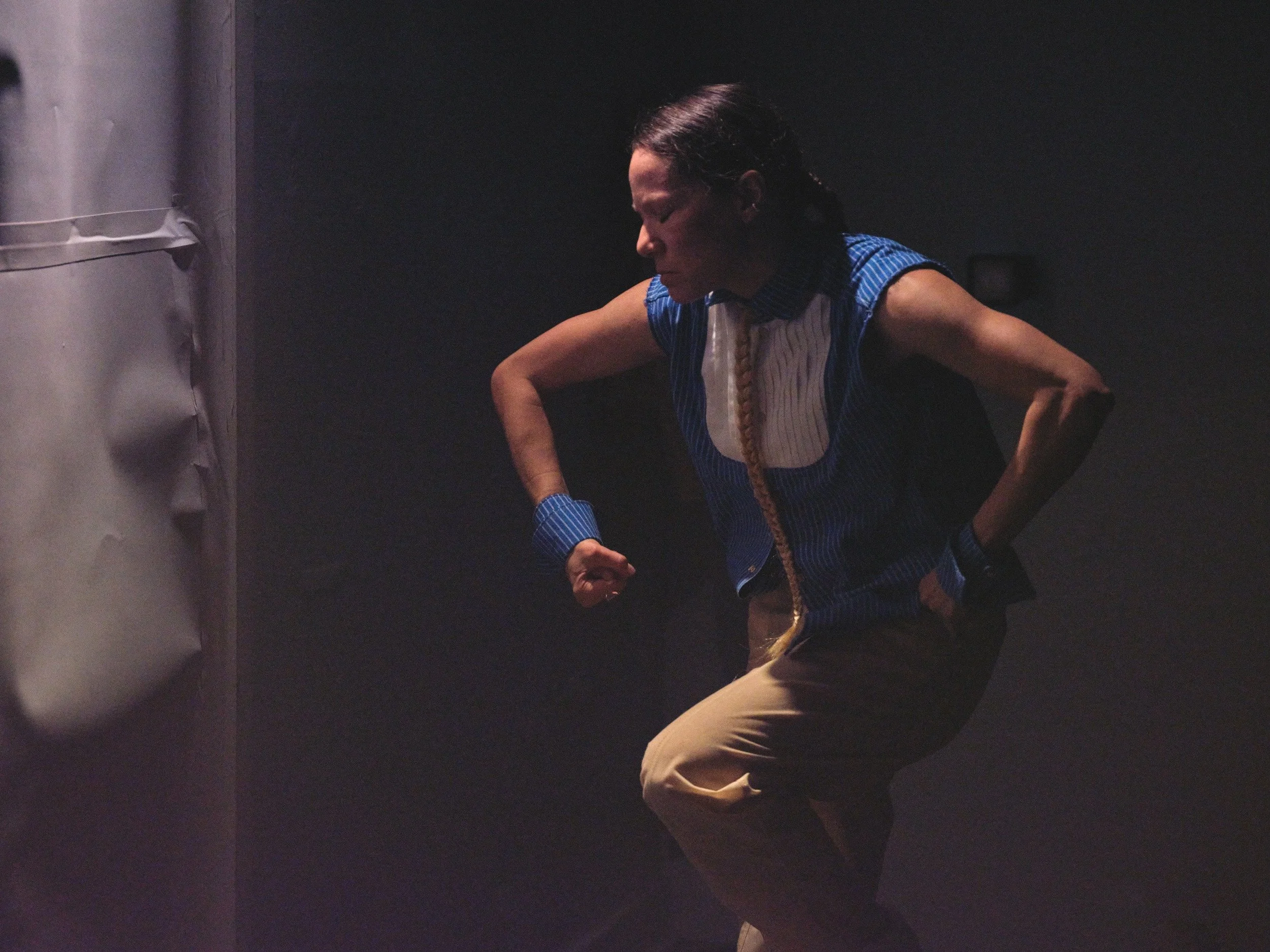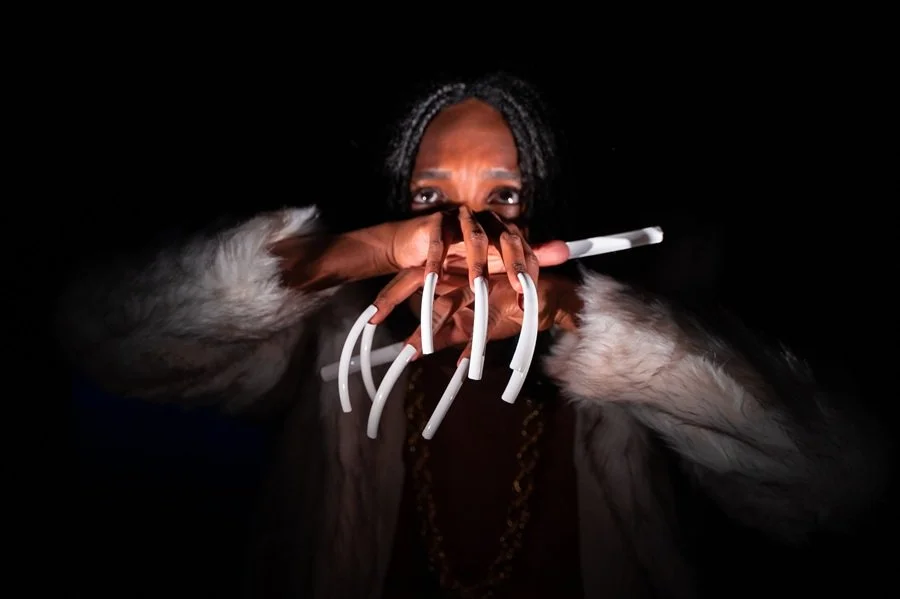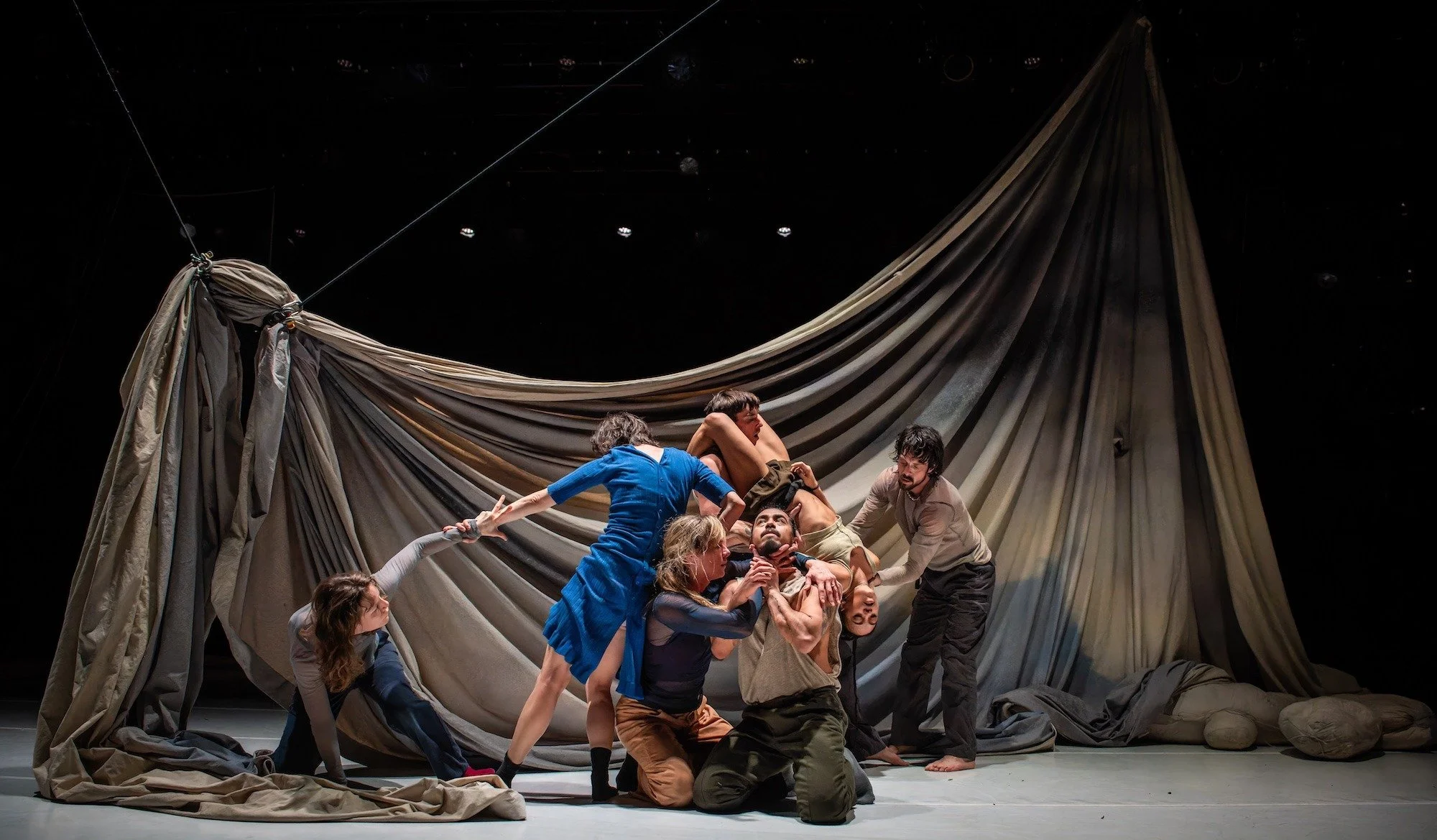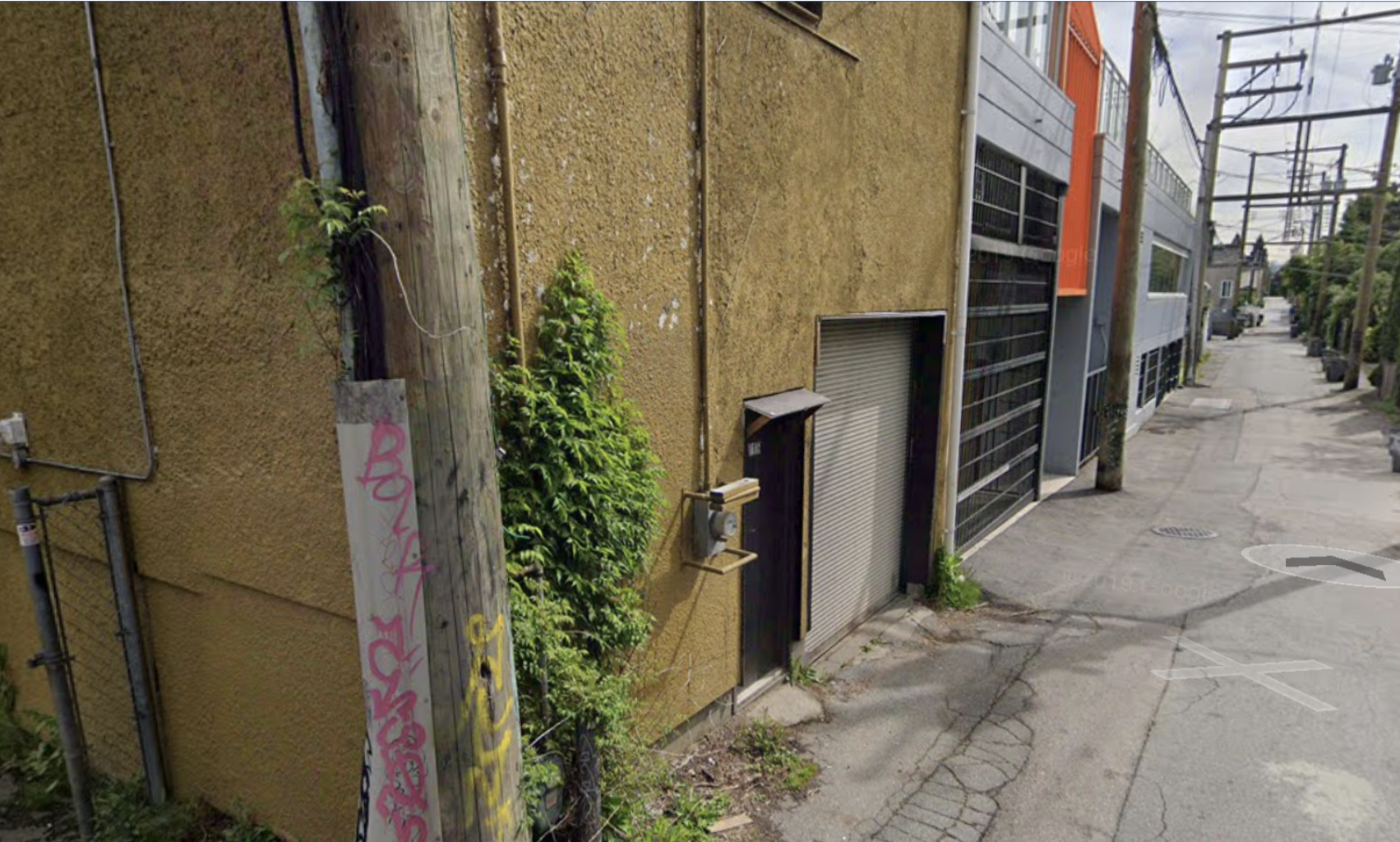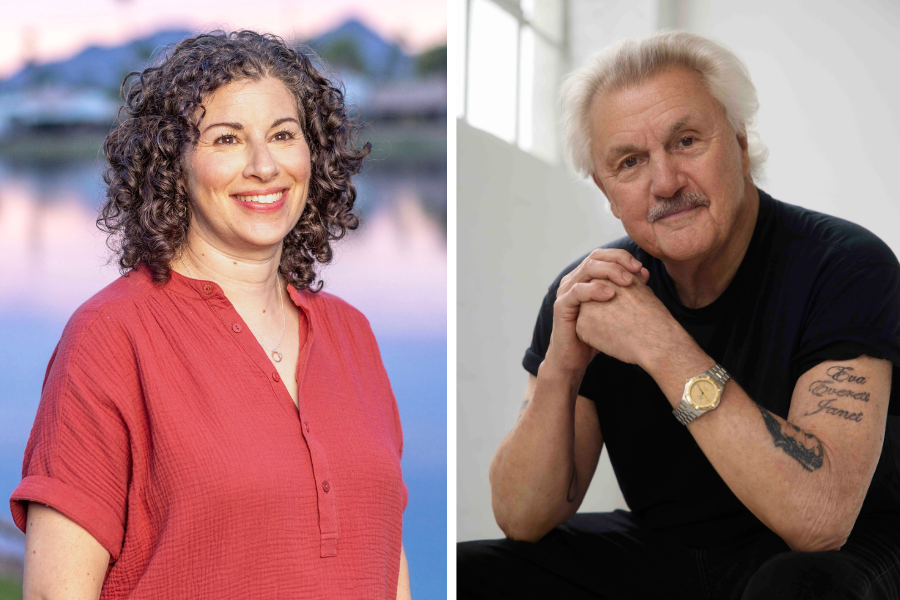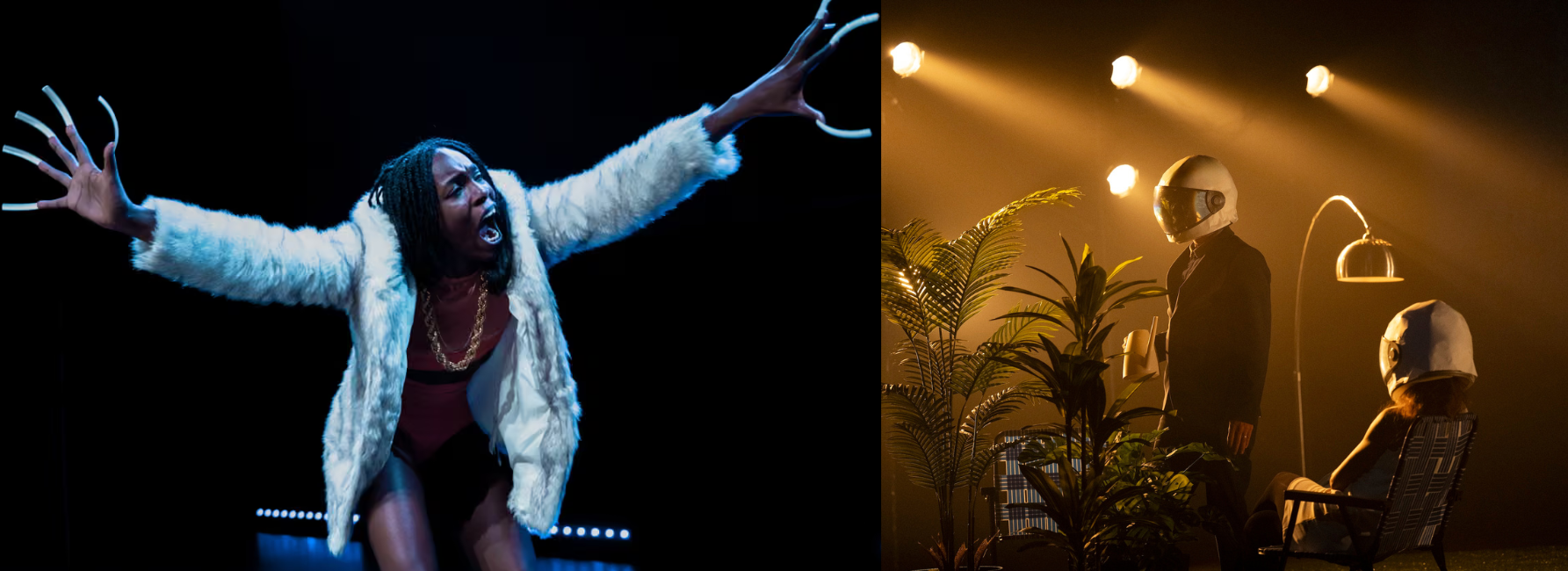5X: Race to the Stage festival celebrates South Asian youth culture
Taking place on an app for the first time in response to the pandemic, the Surrey-based fest unites South Asian millennials beyond physical borders
Gender non-conforming writer and performance artist ALOK is participating in 5X: Race to the Stage, presented by the Vancouver International Bhangra Celebration Society. Photo by Bronson Farr Photography
5X: Race to the Stage takes place via app until November 15
BEFORE COVID-19, the 5X Festival—which champions South Asian youth culture—would unfold over five days, with events featuring fashion, art, music, film, and more, and culminate in a blow-out block party for 10,000 in Surrey.
Inspired by SXSW and Afropunk, the fest put on by the non-profit Vancouver International Bhangra Celebration Society looks much different this year.
In its pandemic pivot, the team has shifted all of the happenings onto app-based stages for a weeks-long event being called 5X: Race to the Stage. Festival-goers move from stage to stage by walking around in the real world; the app is connected to mobile devices’ built-in step counters. (The app, available now on iOS and Android devices, was produced in partnership with a global wellness and fan-engagement platform called Stepathlon.)
The “race” part of the name is somewhat of a misnomer; the interactive experience is more of a journey, but there is a leaderboard for keeners who want to try and get through all the stages quickly.
Sandy Gill, aka Sandy Lion, is a global fashion stylist.
Geared to 16-to-35-year-olds, the celebration may have an entirely new feel this year, but its meaning and purpose remain the same: to be a place of inclusivity, welcoming, creativity, well-being, and relationship-building.
Many local South Asian youth have complex identities and know what it’s like to be excluded, says Tarun Nayar, VIBC executive director. Nayar, who has lived in East Vancouver for the last 15 years, was as born and raised in Montreal, the child of a white Canadian mother from New Brunswick and a Punjabi Hindu father from India.
“My mom came out of the closet after 30 years of marriage and is now happily remarried,” Nayar tells Stir. “I’ve spent much of my life bridging worlds: living in between India and Canada, working in mainstream and underground music cultures.
“I think many youth coming from ‘old world’ cultures have challenges and opportunities arising from their hybrid identities: listening to Drake with their friends at school, and listening to Punjabi music at wedding receptions on the weekend. Not seeing the fullness of themselves represented around them.”
5X, Nayar says, aims to provide a space where South Asian youth can be themselves fully and be embraced regardless of sexuality, gender, or religion. Winding up with a two-day finale mainstage experience on November 14 and 15, the festival features dozens of performances and workshops by more than 60 local and international artists, including Australia’s Pallavi Sharda, a Bollywood star and dancer specializing in bharata natyam and contemporary Indian dance; gender non-conforming writer and performance artist ALOK, who has presented work in more than 40 countries; and fashion stylist Sandy Gill, aka Sandy Lion. By moving the event online, participation has already more than doubled last year’s numbers. So far, more than 20,000 people from all over the world have downloaded the app, giving its artists exposure to a vast audience and uniting South Asian youth across borders.
“The inception of the idea behind 5X was to create a festival by us for us,” Nayar says. “We were tired of ‘cultural’ festivals run by white people trying to legitimize or exoticize our culture. We’re deeply inspired by Afropunk and see in their idea of celebrating Black excellence something that we can deeply learn from. There is a way forward in which we can share and tell our own stories, in our own voices—and shine.
“I think South Asians are in a unique position in North America,” Nayar adds. “We’re clearly not the dominant culture, but we’re growing quickly, and many South Asians, first- and second-generation immigrants, have done very well for themselves. We know what it is to not be included - but we also have considerable political and social power. That’s what makes it important for us to speak up. Especially now. About Black Lives Matter, about colourism in our community, and about racial and religious prejudice.”



